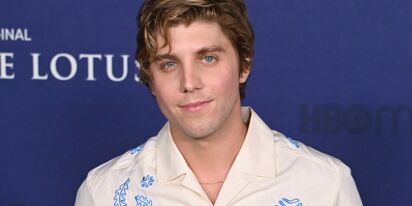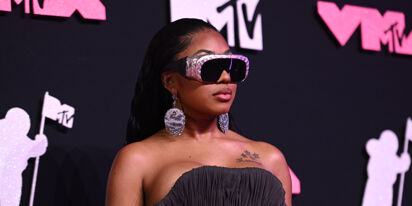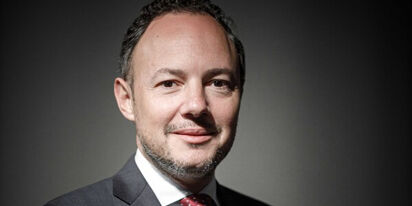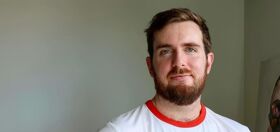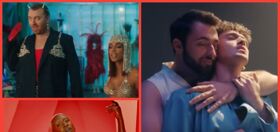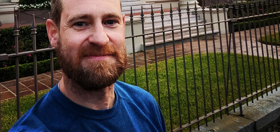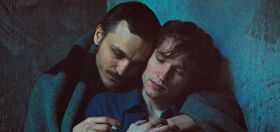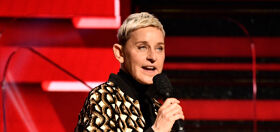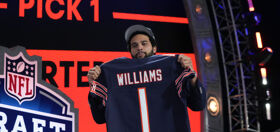View this post on Instagram
This profile is part of Queerty’s 2022 Out For Good series, recognizing public figures who’ve had the courage to come out and make a difference in the past year, in celebration of National Coming Out Day on October 11.
Name: Janelle Monáe Robinson
Bio: Pop/R&B singer Janelle Monáe has been building her Afro-futurist musical mythos for over a decade, starting with her early Metropolis: Suite I (The Chase) EP in 2007. The universe they’ve built over the course of projects like The Electric Lady and Dirty Computer is full of androids and bounty hunters, standing as an allegory for anyone forced to live as the “other” (especially Black and queer folks like herself). She established herself as a considerable triple-threat in 2016 with back-to-back acting performances in Moonlight and Hidden Figures, a title they’ve kept going in films like Antebellum and the upcoming murder mystery Glass Onion.
View this post on Instagram
Coming Out: Monáe’s coming out has been a gradual and evolving process (as it is for many of us).
How about we take this to the next level?
Our newsletter is like a refreshing cocktail (or mocktail) of LGBTQ+ entertainment and pop culture, served up with a side of eye-candy.
Since bursting into the mainstream on fun.’s 2011 hit “We Are Young”, the singer’s sexuality has been a point of conversation. Their debonair, almost dandyish mode of dress and styled pompadour made them a target for homophobic comments early in her career. Far from being intimidated, they coyly stated in a 2011 interview that they’d discuss their sexual orientation “in due time.”
Her time came in 2018 as she began to introduce audiences into the world of her third studio album, Dirty Computer. Folks once again entered heavy speculation mode when she dropped the music video for her single “Pynk”, a devotional to the feminine complete with a frolic with her then-rumored girlfriend, actress Tessa Thompson.
The video also features the iconic Duran Lantink-designed pussy pants, representing women with vaginas of different shapes as sizes — as well some ladies with no vaginal symbolism at all. It’s giving trans-inclusion through pants!
Soon after, they formally came out as pansexual in a Rolling Stone cover profile; they’d originally identified as bisexual, but came to find pansexual to be more fitting.
“Being a queer Black woman in America, someone who has been in relationships with both men and women,” she said, “I consider myself to be a free-*ss motherf*cker.” Period.
View this post on Instagram
That refining of identity occurred again this year, with the singer openly referring to themself as nonbinary on the Smith family’s online talk show, Red Table Talk.
“I’m non-binary, so I just don’t see myself as a woman, solely,” she says. “I feel like God is so much bigger than the ‘he’ or the ‘she.’ And if I am from God, I am everything.”
They also asserted that their identity isn’t them rejecting women by any means, saying, “I will always, always stand with women. I will always stand with Black women. But I just see everything that I am, beyond the binary.”
Their ever-developing public identity is representation not just for the community she claims, but for the general fluidity of queerness. In a culture increasingly fixated on stricture and specific identification, Monáe’s open changeability is its own form of queer liberation.
You can watch her full Red Table Talk appearance here:


